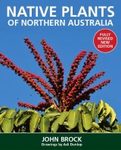By
Leon (NHBS Catalogue Editor)
28 Nov 2018
Written for Hardback

When I reviewed the book
Defending Biodiversity, one of the reasons that was discussed as to why we should protect nature was the possibility of undiscovered pharmaceutical drugs. Seasoned ethnobotanist Robert A. Voeks shows that this so-called jungle medicine narrative has a long history. Though partially true, it equally contains parts myth, sentimentality, and nostalgia. However, if you are expecting a sceptical critique of superstitious indigenous practices – I was initially wondering whether the book would – no, this book delivers something far more interesting. Without belittling traditional knowledge, Voeks instead exposes the flaws in our interpretation and delivers a nuanced and fascinating ethnobotanical history lesson to boot.
In the unlikely case the notion of a “jungle medicine narrative” does not ring a bell,
this trailer for the 1992 movie
Medicine Man (with the eternally charming Sean Connery) perfectly encapsulates the defining elements: the mysterious Amazon rainforest, the promise of a miracle cure for cancer, the old medicine man, and the threat of civilization encroaching in the form of a logging company.
Voeks situates the emergence of this narrative in the mid-1970s. A time when global environmental problems such as deforestation and the hole in the ozone layer entered the public consciousness. But equally, a time when the threats of new pandemics such as AIDS and Ebola arose (see
Spillover). Against this backdrop, the promise of undiscovered miracle cures was a powerful and irresistible argument that well-meaning scientists and environmentalists could yield to try and stop the destruction of tropical rainforests. Both Richard Evans Schultes (see his
Vine of the Soul) and Mark J. Plotkin (see his
Tales of a Shaman's Apprentice) are prime examples of scientists who were instrumental in introducing ethnobotany to a wide audience.
In order to pick apart the finer points,
The Ethnobotany of Eden offers an informed history. Our notion of the rainforest as a place of mystery has been heavily influenced by explorers and colonists from the time of Columbus onwards. They both romanticized these far-flung destinations, and sexualized it, birthing the notion of the virgin forest. Similarly, later explorers, from Alexander Von Humboldt to Alfred Russell Wallace and Charles Darwin, were staggered by the rich biodiversity. But, as Voeks points out, this idea of pristine wilderness is largely illusory. Decades of research have shown that appearances can be deceptive and that vast swathes of the jungle have been shaped by millennia of human inhabitation.
The colonial conquests from the 15th century onwards saw various colonial powers warring with each other to gain the upper hand in the trade of spices and new botanical riches such as rubber. With it came the ruthless exploitation of local populations and the rise of the slave trade, but also the spread of disease (see e.g.
Contagion: How Commerce Has Spread Disease). Hailing from filthy, crowded cities, surrounded by livestock, colonist introduced new pathogens to the Americas, decimating indigenous populations that lacked immunity. This is known as the Columbian exchange and, next too superior technology and weaponry, is considered an important reason that Western conquest was so successful (Crosby’s
The Columbian Exchange and
Ecological Imperialism are classic, if perhaps slightly dated books on the subject). Interestingly, as Voeks points out, this decimation of indigenous populations and the subsequent rapid rebounding of both plant and animal life may well have contributed to the notion of a pristine wilderness untouched by humans.
Simultaneously, explorers, traders, and missionaries were exposed to tropical diseases, but also to botanical cures employed by locals. This is the kernel of truth at the heart of this narrative. One of the success stories was the discovery of cinchona or fever-wood, a plant that contains the alkaloid compound quinine that effectively combats malaria. Voeks here highlights several more flaws in our narrative. Ironically, most medicinal plants are not associated with pristine rainforest. Careful ethnobotanical study has shown that most of them are found in disturbed habitats such as home gardens, trails, swiddens (areas cleared for cultivation by slashing and burning vegetation), or secondary-growth forest, and often derive from weeds and domesticated food plants. Furthermore, the cliché of the mystical (male) shaman completely overlooks the role of women, whose knowledge often overlaps, complements, or outshines that of men.
There is another very interesting strand that Voeks adds here. The trans-Atlantic slave trade and the forced migration of millions of Africans whose descendants now populate Brazil and the Caribbean reveals that ethnobotanical knowledge is not necessarily accumulated over thousands of years. Plants and knowledge flowed in both directions across the Atlantic, and Africans in South America were able to rapidly recreate their botanical traditions, even in the face of European oppression.
Though Voeks thinks that most important discoveries have already been made, he willingly admits that the potential for undiscovered cures remains. In his opinion, the jungle medicine narrative got one thing right: these undiscovered cures are under threat from encroachment by Western civilization. Both the loss of tropical forest, but also the loss of knowledge as younger generations grow up in a more globalised world and eschew the traditions of their parents, present big threats.
The Ethnobotany of Eden ends up being a carefully written book that manages the balancing act between a respectful treatment of indigenous knowledge and an incisive critique of our environmental myth-making. Voeks casts no doubt on the idea that the jungle can and has provided botanical cures, but the reality is both far more nuanced and far more fascinating than the stories we have been telling each other.



































